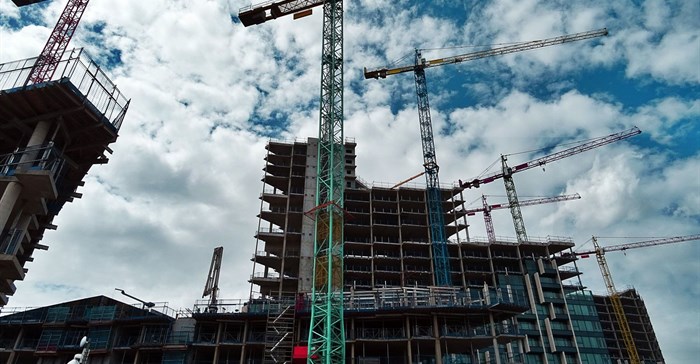The commercial property sector breathed a sigh of relief when the South African Reserve Bank decided to maintain the interest rate at 11.75% during the Monetary Policy Committee (MPC) meeting in July 2023. This decision was seen as a positive step towards stabilising the market. However, for the market valuations to truly settle, there is a need for continued stability in the interest rates. The sector is hopeful that such stability will be maintained in the future, allowing for a more predictable and secure investment environment.

Source: SevenStorm JUHASZIMRUS/Pexels
“The rapid fall of interest rates during the COVID-19 pandemic followed by the rapid ascent over the past two years, has led to increased volatility, making it difficult for the market to find its footing in terms of valuations. Buyers tend to try and price ahead of the curve, pushing the market to unrealistic levels on the bid side,” comments John Jack, CEO of Galetti Commercial Real Estate.
The good news for the commercial property sector is that with inflation levels dropping to 4.7% in the last month months - just shy of the South African Reserve Bank's target of 4.5% - a rate hike seems unlikely. “Many economists foresee stability for the year and potential rate reductions from early 2024.”
Jack delves into what the three possible rate announcement scenarios could mean for various commercial property asset classes:
Scenario 1: Rate hold
While the current prime lending rate of 11.75% is the highest it has been in a decade (even exceeding the pre-pandemic rate of 10%), keeping it at 11.75% is still preferable to a rate hike. “Doing so would allow the three major commercial property asset classes of retail, office and industrial, to continue the slow recovery they’ve experienced since early 2022, when the major economic pressures of the pandemic started to ease,” Jack says.
Retail witnessed a robust recovery in 2022, driven by consumer return to brick-and-mortar stores. The township retail sector has also seen remarkable growth, fuelled by increased purchasing power in these areas and a preference for cash purchases among these shoppers. Recent research from BCG reveals that 86% of South Africans prefer cash payments, and retailers catering to this preference are reaping the rewards.
One year on and rising food inflation costs have deterred some shoppers from major grocery retailers, resulting in a 1.6% year-on-year decline in retail trade sales, as per Stats SA. “To add to this challenging environment, the ongoing loadshedding crisis has resulted in skyrocketing operational costs for alternative power sources to protect the integrity of the food hygiene chain,” comments Jack. “A rate hold scenario could allow retailers some recovery, as well as the consumer.”
Scenario 2: Rate hike
While a rate hike would be challenging for all three asset classes, none would be harder hit than the struggling office sector which is grappling with oversupply. The Rode’s Q2 2023 State of The Property Market Report finds that REITs are still generally reporting large negative office rental reversions as contractual rentals have outpaced market rental growth. The outlook for sector recovery is clouded by the post-pandemic hybrid and remote working trend which has increased vacancy rates.
However, the Rode's Report for offices does offer a glimmer of hope, with nominal rentals for decentralised grade-A office space increasing by 3.5% in the past year and indicators suggesting that rental demand levels have now stabilised after a sharp drop during the pandemic. Cape Town stands out as the top performer in this regard, with grade-A office rentals increasing by 13% year-on-year.
“Selling and auction bidding prices for commercial properties would be an increased deviation from realistic pricing levels, and we could expect investment financing to dry up in a rate hike scenario - especially in the new development space,” adds Jack. “Investment financing is crucial to the recovery of the office sector and this scenario would severely compromise the affordability of investors.”
Scenario 3: Rate slash

John Jack, CEO of Galetti Commercial Real Estate
Buyers will rush into the market to capitalise on high-yielding properties before valuations adjust. The prospect of rate cuts is on the horizon, following the trend of the US Federal Bank’s decision to cut rates in 2024 and the curbing of inflation. This decision will be a major help in restimulating South Africa’s sluggish economy.
“Even the logistics sector, the top performer of the asset classes by a large margin, has felt the impact with the Rode’s Report showing weaker rental and stand value growth. Industrial property building activity also slowed down, hampered by inflated material costs, and delays due to loadshedding,” comments Jack.
“Rode's predicts higher vacancy levels in the coming months if the sector does not receive a boost in the form of interest rate cuts to stimulate demand.”
“Unfortunately, the commercial property sector will likely have to wait a bit longer for relief, as most economists recently surveyed by Reuters predict that the rate-cut cycle will only begin in early 2024, with the possibility of further decreases every quarter,” Jack concludes.







































